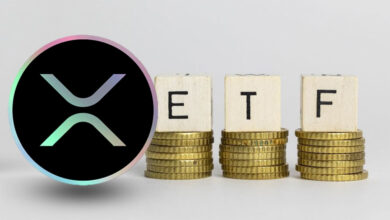OKX Shakes Crypto Space, Monero, Zcash, and Dash to be Delisted

OKX, a significant player in the cryptocurrency exchange sphere, has announced a decisive move—delisting 20 spot trading pairs as the new year approaches.
Notably, this includes some of the most prominent privacy-focused cryptocurrencies like Monero (XMR), Zcash (ZEC), and Dash (DASH).
The exchange has already halted deposits for these assets, with trading scheduled to cease on January 5, citing user feedback and deviation from their listing criteria as reasons.
The exact motivations behind this delisting remain undisclosed in their Friday announcement, leaving many in the industry seeking clarification on OKX’s policies, including those surrounding these privacy coins.
Customers have a window until March 5, 2024, to withdraw these assets, marking a notable shift in OKX’s operational focus. This move aligns with a broader trend within the crypto exchange landscape, where compliance with regulatory standards has become increasingly prioritized.
This decision echoes a similar move earlier in the year by another major exchange, Binance, which initially announced plans to delist privacy coins, only to retract that decision later on.
It is worth noting that privacy coins, distinct for their emphasis on anonymity in transactions, have been a contentious category in the crypto world. While they promise heightened privacy by concealing transaction details, this very feature has drawn regulatory scrutiny globally. Concerns revolve around potential misuse for illicit activities, including money laundering and bypassing economic sanctions.
This regulatory pressure has put crypto exchanges in a challenging position—balancing customer privacy demands with the imperative of complying with evolving global financial regulations. For instance, the European Union’s Markets in Crypto-Assets Regulation (MiCA) mandates rules preventing the trading of crypto-assets with inherent anonymization features unless both holders and their transaction history can be identified.
Addressing this, technical solutions have been proposed, requiring collaboration between privacy coin developers and exchanges. However, in cases like Zcash, attempts at solutions have reportedly been rejected by exchanges like Binance, creating a deadline for compliance.
Despite the potential limited impact on trading volumes, OKX’s move symbolizes a larger industry-wide trend where regulatory alignment increasingly shapes exchange policies. This evolution highlights the ongoing quest within the crypto world to find a harmonious balance between user privacy and regulatory compliance—a quest that continues to drive research and discussions within the community.





